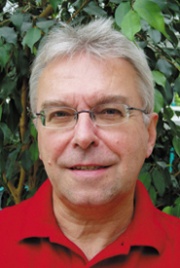Derek Gregory
From Geography
Contents |
Biography
Derek Gregory is an influential post-modern geographer, who focuses mainly on political geography. His work is distinguished by a focus on processes of historical and geographical change and by an attention to critical theories capable of illuminating the ways in which place, space and landscape are implicated in the operation and outcome of social processes. His work is influenced greatly by the work of Edward Said (Gregory, n.d.).
Derek Gregory was born in Kent, England on 1 march 1951. After his graduation at Cambridge, in 1972, he was appointed as a University Assisted Lecturer in geography by the University of Cambridge in 1973. He remained in this position until 1978, when he advanced to University Lecturer in Geography. He taught at Cambridge University up to his appointment as Professor of Geography at the University of British Columbia at Vancouver in 1989 (Gregory, n.d.).
“My research has two interconnected themes. Most generally, I am interested in the spatial modalities of late modern war, where military violence, occupation and peace bleed into one another. My focus for these investigations is the Middle East, specifically Iraq and Israel/Palestine, but I also consider Afghanistan/Pakistan, East Africa and the geography of the global war prison. My particular concerns are in the production of spaces that make war possible and permissible via practices of locating, inverting and excepting and in the production of imaginative counter-geographies through artwork, drama and literature. I am also interested in cultural and political geographies of bombing, from Europe bombing its colonial populations in the early twentieth century through Spain, the Second World War, the wars in Korea, Cambodia, Laos and Vietnam, to the Gulf War, Afghanistan / Pakistan and Iraq. In both cases I draw (critically) on ideas from cultural and political theory/philosophy (including Agamben, Butler and Foucault) and from the visual arts and literary studies (including Said and Sebald)” (Gregory, as cited in UBC, n.d.).
Key concepts
Dividing practices is a key concept of Derek Gregory in his postcolonial theory. Dividing practices are practices which are used to make a distinction between the insiders and the outsiders.
Another concept of Derek Gregory is the Biopolitical War. This means that in today’s wars the warfare is no longer between two armies on a battlefield but nowadays the civilians are the targets.
Derek Gregory has his own view on Agamben's theory about Homo sacer and state of exception and this can be seen as a key concept of Gregory's postcolonial theory.
Area of overlap with the Action-Theoretical tradition
There is a certain link with the action-theorist Anthony Giddens. Because Derek Gregory has to do with the Giddens'theory of structuration. Namely, the first attempt to integrate the spatially enlarged social theory of structuration into the geographical worldview has been undertaken by Gregory (Werlen, 2009). His regional geography was based on Habermas and later on Giddens’ critical theory . This theory is founded on criteria that are derived from structuration theory and not on physical geographical conditions. Gregory’s regional geography starts with the question of how societal realities are regionally formed and articulated (Werlen, 2009). And with this starting point Gregory wants to find the way to appropriate regional political or scientific interventions. To link back to the structuration theory of Giddens: Gregory’s main goal of this project is that spatial structures are somehow incorporated in social structures and vice versa. See also Gregory’s reference schema to the structuration theory in Werlen (2009, p. 52).
Area of divergence with the Action-Theoretical tradition
There are also divergences between Giddens and Gregory. In the structuration theory of Anthony Giddens, human agency is formed by structure and forms structure in everyday life. In this theory there are always structures but there is also always a freedom to choose. This is quite different from the view of Derek Gregory where people do not have the freedom to choose when they are in spaces of exception. For instance in Guantánamo Bay where the prisoners cannot even choose not to eat, because then the food will be forced on them.
References
- Gregory, D. (n.d.) Profile. http://web.mac.com/derekgregory/iWeb/Site/Profile.html
- Universtiy of British Columbia (n.d.). Geopolitics, Biopolitics and Security: Killing Space: Targeting, Technoculture and Art of Bombing. http://www.geog.ubc.ca/research/geopolitics.html
- Werlen, B. (2009) Structurationist Geography. In: International Encyclopedia for Human Geography. Elsevier
Contributors
- Biography enhanced by --CasparEngelen 23:59, 15th of October 2011 (CEST)
- Key concepts enhanced by --CasparEngelen 23:59, 15th of October 2011 (CEST)
- Picture inserted by --SusanVerbeij 16:17, 24th of October 2011 (CEST)
- Area of divergence enhanced by --SusanVerbeij 16:40, 24th of October 2011 (CEST)
- Area of overlap enhanced by Pauline van Heugten - ...
- Page added to the category 'Human Geography' by Iris van der Wal - October 25th 2012
